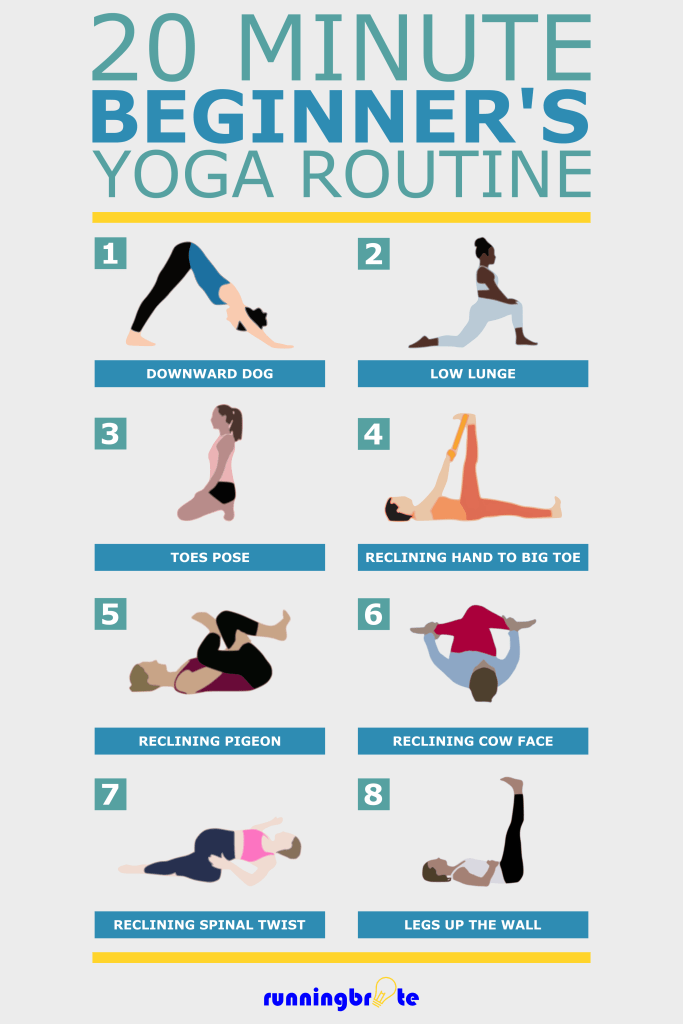
A New York Times article from 2012 suggested that yoga can ruin your back and even kill you. This article was based solely on cherry-picked examples, and many were exaggerated. These stories do not reflect the experience of yoga. Scientists have confirmed that yoga is generally safe. For beginners, here are some tips.
Yoga is an exercise form that can provide many health benefits. You should immediately stop practicing yoga if you have any type of injury. Continued practice can lead to more complications such as hemorhoids or cause pain. These cases should be reported to a doctor and a certified yoga instructor. For hip issues, it is important to find a qualified instructor that specializes in teaching people with these conditions.

Performing yoga poses improperly can cause serious problems. It is important to check with your doctor first if you are in the midst of a knee injury. Although the poses can sometimes be modified to reduce these risks, it is still a good idea to consult your doctor before you attempt them. It is important that you note that yoga may not be suitable for those with heart and lung problems. Heartburn, like any other exercise, is the main problem with excessive yoga.
People with health conditions should avoid yoga because it can lead to serious injuries. Some poses, such as Paschimottanasanasana and Padmasanasanasana can pose a risk. Avoid yoga if you have disc or knee pain. You might end up injuring yourself or worse, hurting yourself. The only way to get through this is to practice safely and regularly.
While yoga practice has many benefits, some poses are not worth it. While certain poses can damage your knees, others are not usually dangerous. You should adjust your ability to perform the poses to fit your current level of fitness and health. If you have arthritis, you should avoid putting too much stress on your knees. Also, they are not recommended for pregnant women or those with high blood pressure.

Although yoga is a great way to relieve stress and improve your health, it can also be dangerous for some people. It's not just about reducing your stress, it can cause serious injury. Intense yoga involves standing on one's head or stretching your legs. These activities can lead to injury. While yoga can improve your overall quality of life and safety, there are some types that are not suitable for everyone. While it is good for your physical health, it can be dangerous for some people.
FAQ
Do Men Need A Gym Membership?
A gym membership is not necessary for men. You will get more value for your money if you join the gym.
Most gyms offer free trial memberships, allowing you to try out the facilities before paying any fees.
You can use the gym at any time you want, and it doesn't cost anything. It's easy to cancel your membership when you decide whether or not you love the gym.
What is butter good for?
Butter is a great source of saturated fats. This fat is good for hair and skin health, as well as stronger bones.
Butter also contains vitaminK, which prevents bleeding after cuts and bruises. Vitamin K is combined with vitamin C to prevent bruises.
Butter also contains minerals like calcium, phosphorous and potassium. These minerals promote stronger bones, teeth, and teeth.
Butter has its limitations. Butter contains high amounts of cholesterol. A few studies have shown that too much cholesterol can increase the risk of developing coronary disease.
Butter is high in saturatedfat, which contributes both to obesity, and raises cholesterol.
But if butter is a must, you can spread it on bread and not dip it in soups or salads. Bread absorbs oil more than pasta or potatoes.
Do I have the obligation to exercise every day or just on occasion?
No! No! This means that you should be able to walk fast enough to feel slightly out of breath, or bike hard enough to sweat.
What is a good seven-day workout routine?
Three days per week should be spent on cardiovascular training, including running, biking, swimming, and two strength exercises using free weights, weight machine, as well as one flexibility/core exercise such as yoga, Pilates. Each activity must be completed at least once per week. Each session should not last more than 45 minutes.
Cardiovascular Exercise: Running/Biking/Swimming
It is important to complete at least 60 minutes of cardio per week. You can aim for 75 minutes a week for best results. Cardio exercise can improve blood flow and stimulate muscle development.
Strength Training
Cardio exercises work on the heart and lungs. Strength training works on the muscles and bones. Strength training can help you burn calories even when you're not working out.
Flexibility & Core Workouts
Core and flexibility exercises are great ways of strengthening your whole body. Yoga and Pilates are both excellent choices.
How many calories should I eat daily?
This varies from person to person. On average, 2000 to 2500 calories are consumed per day. The factors that determine how many calories are needed for you include your gender, age, height, activity level, lifestyle, and gender.
Statistics
- By John Thompson Take a whopping 38% off a set of PowerBlock Pros. (menshealth.com)
- An estimated calorie range for moderately active adult males falls between 2,200 to 2,800 calories per day, depending on age. (eatright.org)
- Are You One of the 20% of Guys (mh.co.za)
- According to the American Heart Association, blood pressure should be checked at least once every two years, beginning at age 20. (my.clevelandclinic.org)
- The PRS enabled risk stratification for overall prostate cancer and lethal disease with a four-fold difference between men in the highest and lowest quartiles (HR, 4.32; 95% confidence interval [CI], 3.16-5.89). (pubmed.ncbi.nlm.nih.gov)
External Links
How To
What nutrients does a man need daily?
Men require daily nutrition for healthy growth and development. The body needs vitamins, minerals as well as proteins, carbohydrates and fats.
Males also require specific nutrients at certain times of the day. When you're sleeping, your body uses energy from food for hormones, proteins, and enzymes. You use protein to build muscles and repair damaged tissue when you wake up.
Your body stores extra energy as glycogen and breaks down fat at night. Your body has less energy but still requires enough nutrients during this time. If you feel hungry, you can have a snack in the evening.
You need to eat enough carbs and protein when you exercise. Muscle soreness can occur if you work out hard.
To prevent this, you should eat carbs as well as protein within the first two hours after training. Your body will break down stored glycogen to provide glucose for energy.
Additionally, it is important to eat protein right away after your workouts are over. This prevents the breakdown of muscle tissue that occurs while you sleep.
Lactic acid is produced by the body during periods of intense exercise. Your body can build up lactic acid in the bloodstream which causes fatigue. This can be avoided by eating foods high in carbohydrates like fruits and vegetables.
Carbohydrates give your body the energy it needs to recover from strenuous exercise.
Additionally, lean meats, fish and eggs, dairy products, yogurt, cream, cheese, yogurt and beans can be added to your diet.
All these foods are high-quality sources of protein. Protein aids in muscle growth and repair of damaged tissues. Protein also supplies the amino acids your body requires to make sex hormones, such as testosterone.
For healthy skin, hair and joints, it is important to eat enough fats. Healthy men should consume between 20% to 35% of their daily caloric intake from fat.
Fat protects your heart from cancer and keeps it strong. It keeps your brain healthy and functioning well.
Most of the fat you need can be obtained from vegetable oils, including sunflower oil (or soybean oil), peanut oil, peanut oil, soybean oil, and peanut oil.
These oils contain high levels of monounsaturated fat acids (MUFAs). MUFAs can lower cholesterol levels and reduce inflammation. They protect your cells and prevent damage from free radicals.
Saturated fats are found in animal products including meat, dairy products, butter and other dairy products. SFAs can increase LDL ("bad") cholesterol as well as triglycerides. They are also good for weight loss and belly fat.
Plant-based fats such as vegetable oils, seeds, nuts and grains contain polyunsaturated (PUFAs). PUFAs improve cardiovascular function and decrease inflammation. They help to control blood sugars and cholesterol.
Low HDL ("good") cholesterol is a common cause of erectile dysfunction in men. High consumption of saturated fats increases bad cholesterol, which lowers the level of good cholesterol.
Men who eat a lot of red meat or pork develop prostate problems because they contain large amounts of nitrates. Nitrites convert to nitrosamines when cooked at high temperatures. These compounds can lead to cancer.
Nitrites and other harmful chemicals are common in processed meats. Avoid them.
The American Heart Association recommends limiting red meat intake to two meals per week. Choose poultry, fish and legumes instead.